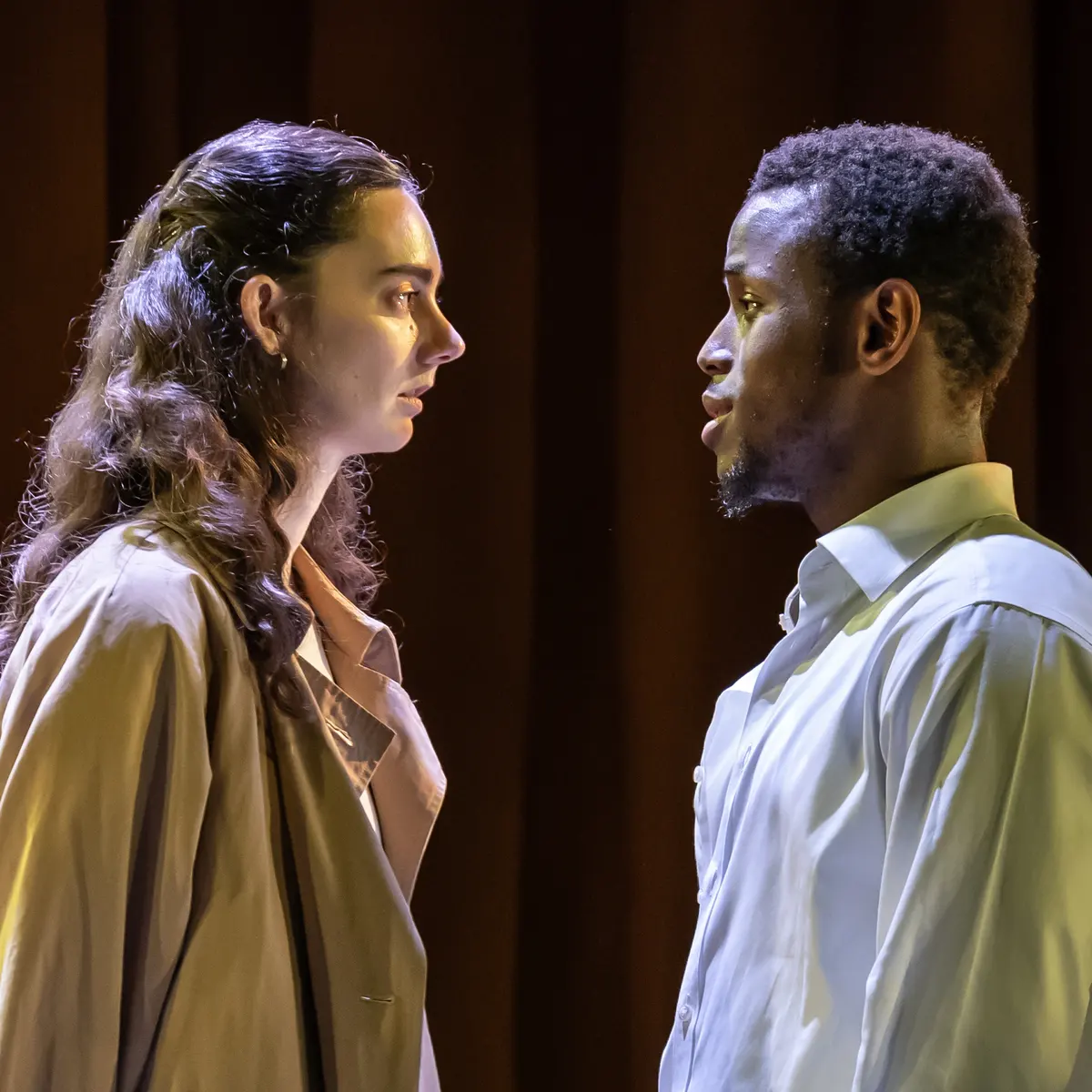The Almeida
Everyone loves a wedding, or at least that’s what you’re meant to say. But you know what nobody loves… an oppressive political regime. Sam Holcroft, building from her tremendous success at The National with Rules for Living (2015) provides a dark new drama, set under the gaze of totalitarian baddies.
Much is expected from Holcroft after her celebrated Darwinian anti-patriarch debut play Cockroach and National success. So it is amusing to be welcomed into the theatre as wedding guests (sadly I forgot my fascinator). Fairy lights twinkle, a spread (as my nan would call it) is stage left, a program is passed to everyone, on walks a bride and groom. People buzz around in suits looking politely stressed, but something isn’t quite right. Black leather gloves are the giveaway, like a Gestapo wedding planner.
Tense interpretations of the wedding repertoire are crackling away by Miriam Wakeling on cello and signs around the foyer and inside the auditorium have a dystopian edge to them. Suddenly the ploy is unmasked.The wedding is a sham to stage a banned play and we are thrown into Max Jones’s claustrophobic office in the Department of Culture. Death of an Anarchist, 1984 and the work of Luigi Pirandello come to mind, although this piece focuses helpfully on the theatrical arm of a controlling state.
Censorship is as old as society is, and the temptations for artists to speak the truth will be at constant odds with any paranoid political entity. But what about these censors? People who can’t help but be influenced by the banned works they upraise, condemn and in some cases destroy. Jonny Lee Miller is Čelik, a preening, hypocritical, bureaucrat. Yet Lee Miller (and Holcroft) gives to him a layered duality. He believes he defends artists, nurturing a wider voice for this unknown nation. A discussion of his great aims for this new world, while he burns a script, is dark comedy at its best, not laugh-inducing but more a rippling groan. Developing writers like Bax, a bombastic and high on fame Geoffrey Streatfeild, also Adem, played with at first salt of the earth naivety by Micheal Ward. But there is more to this young mechanic turned playwright who “knows the breaking point of things” much much more.
A discussion of Adem’s unstageable first play quickly corkscrews into oppressive persecution. Holcroft boldly pens long-winded discussion of theatrical theory with flashes of comedy and bolts of violence. Tanya Reynolds as Mei, the soldier turned secretary, who is pulled into this forbidden world of art, and the orbit of Adem, with disastrous consequences. Čelik’s fantasy of high-minded nationalism and ideals within a constricting framework is predictably just a veneer for the brutality we can see repeated throughout history.
Adem’s perfect memory and dedication to repeating on the page what he witnesses proves more than just a thorn in the side for the fragile establishment and Čelik. It’s a bloody great sword. Jeremy Herrin’s direction is building blocks of characterisation. Ascending menace like the clucking of the cello in the corner. Then whisking off in an instant as we snap back to the forcibly jovial “wedding”. It asks questions of the nature of theatre, and what it can do. Tooting the age-old (perhaps a little clinched) idea of the power of words.
This political play within a wedding, within another larger play is indisputably intellectual. Like layers of onions, one is pulled away just to reveal another, and when you think you’ve got it, a final reveal nocks you for six. A well-woven but still weighty blanket of self-awareness pulled over the audience. Holcroft has given us a deeply gripping tale of humanity and our seduction with authority. The cast and Herrin have given it life, and we leave questioning everything we are meant to question. All the I’s dotted and all the T’s crossed as it were, a meaningful exploration of power that is a little too wrapped up in itself.



